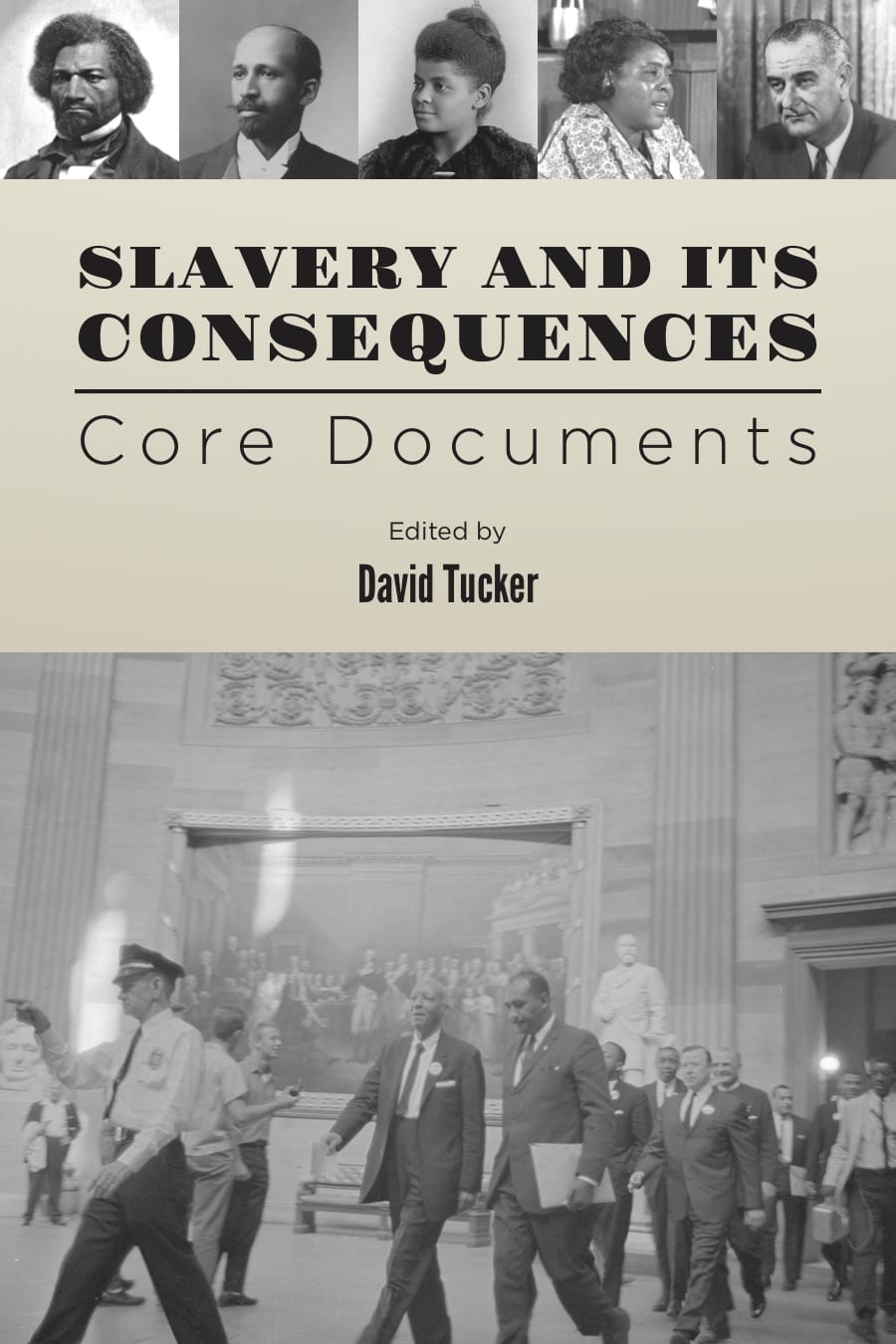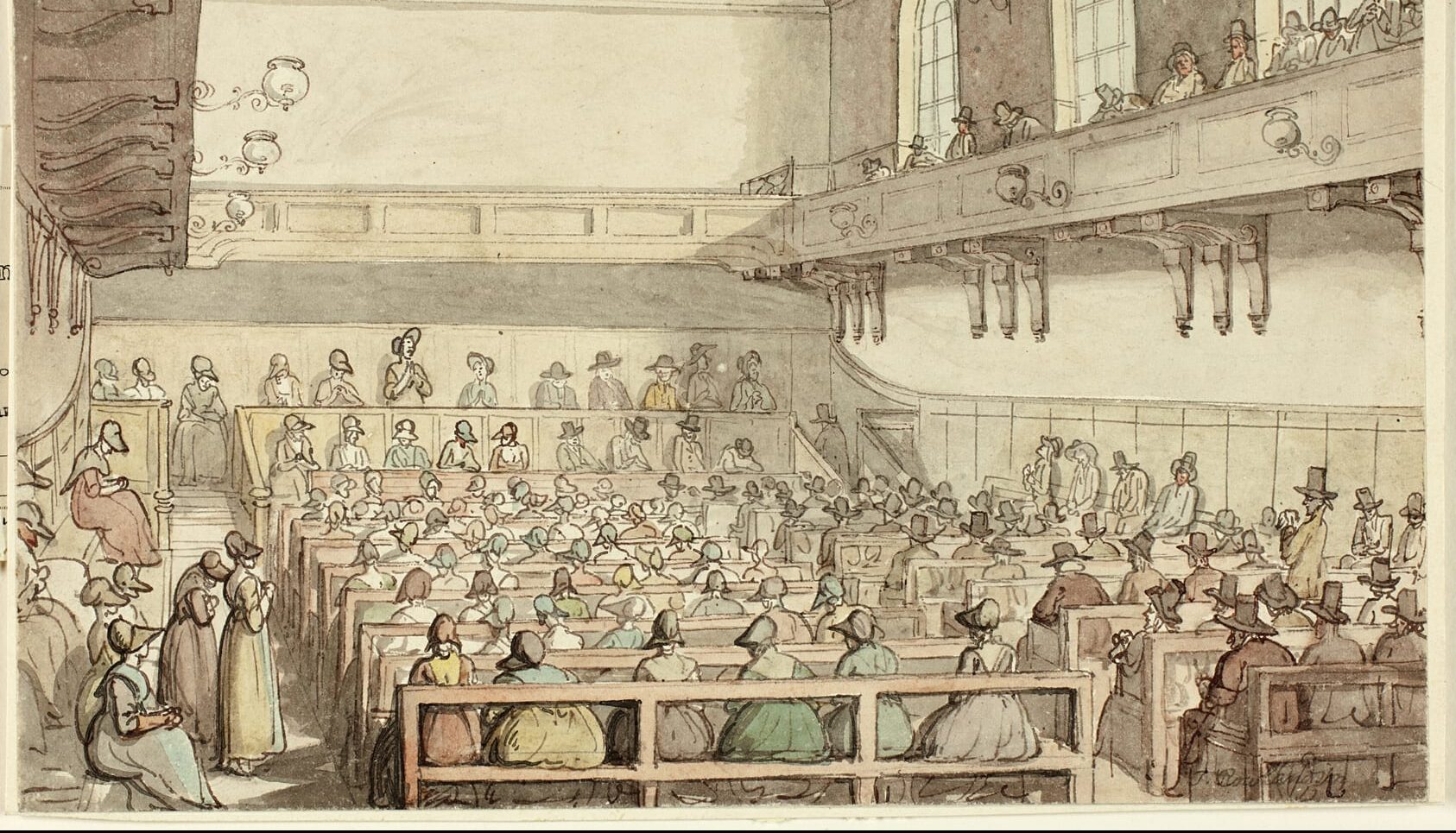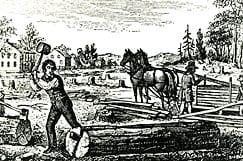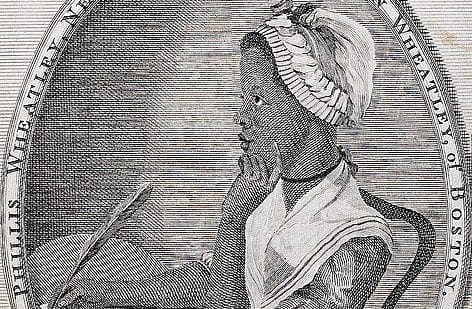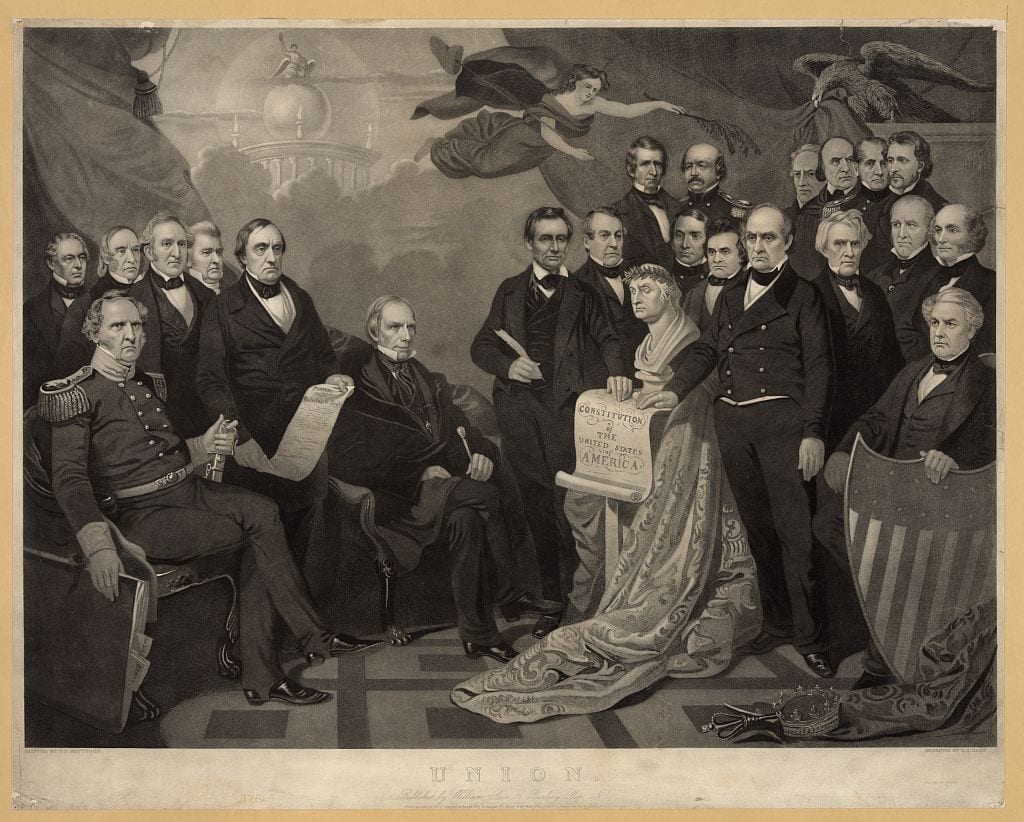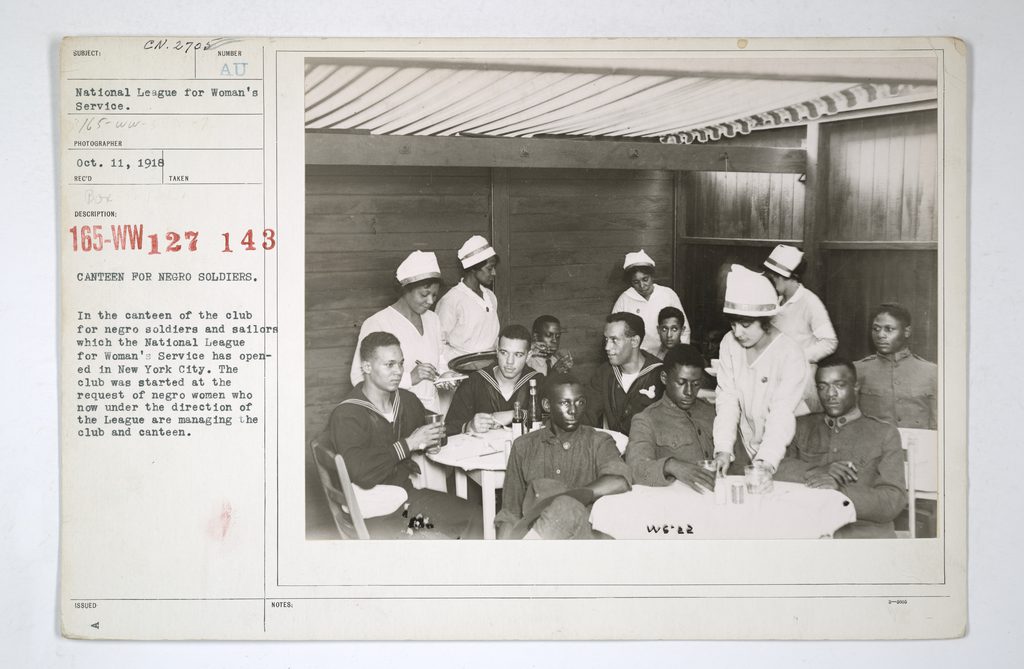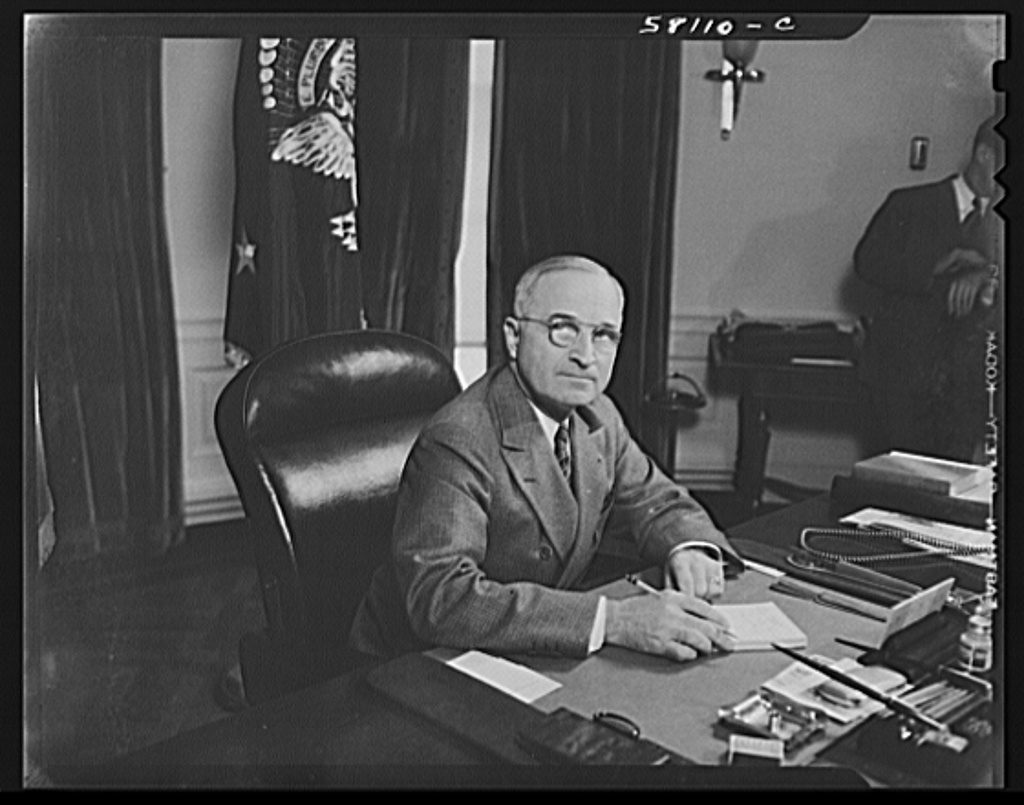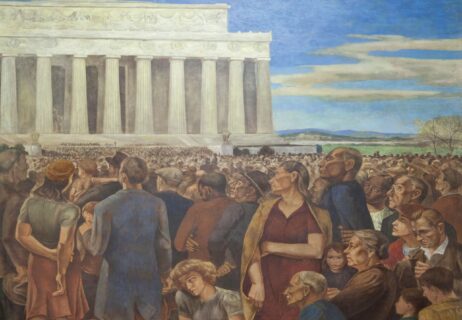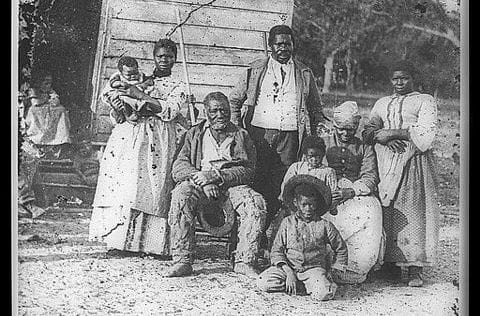
Slavery and Its Consequences
The contemporary debate over identity, race and justice, so pregnant with consequences for Americans, is itself a consequence of slavery.
Justice is the end of government. It is the end of civil society. It ever has been, and ever will be, pursued, until it be obtained, or until liberty be lost in the pursuit.
James Madison, Federalist 51
Slavery has been a near universal part of human existence. It existed in the Biblical and classical worlds. In the ninth century, when Vikings expanded into portions of what is now eastern Europe, they sold so many of the indigenous people into slavery in the Middle East that the English word “slave” derives from the name of these people—“Slav.” During this time and before, the Chinese held other Asians as slaves, and apparently also some Europeans, so globalized was the slave trade, even in the middle ages. The Mongols enslaved as they conquered, using Italian merchants to facilitate their slave trade. Muslim slave raiders captured and enslaved Europeans and others. More than a million Europeans were held as slaves in Muslim countries between 1500 and 1800, where such slavery continued into the nineteenth century. According to historian Alan Gallay, “in 1650 more English were enslaved in Africa [including North Africa] than Africans enslaved in English colonies.” Some early opponents of slavery in America argued against it in part by appealing to the European fear of enslavement by Muslims. Europeans also held many Muslims as slaves. African slaves appeared in Europe in the 15th century and after, even as by 1500 countries in northwestern Europe were declaring that no European should be a slave. Slavery existed in North America before either Europeans or Africans arrived. Native Americans held slaves, often those captured in war, sometimes absorbing them into their tribes, sometimes torturing and killing them ritually. Later, after contact with European settlers, some tribes became slave raiders and dealers, supplying the native American slaves that settlers used in the colonies or sold to plantations in the Caribbean. Into the nineteenth century, native Americans held African Americans as slaves, as did some free African Americans. Slavery was a dominant form of labor and wealth in Africa before the transatlantic slave trade began. Much of the mortality of the trade occurred in Africa, as slaves were marched by Africans to ports to be sold to Europeans, or east to be sold into the Arabian Peninsula and Asia.
Slavery was everywhere in human experience, but everywhere it was different. Slavery was always in some way a deprivation of freedom. Yet, the slave-soldiers of Islamic empires were entirely different from the chattel slaves in America. The former had privileges and standing; the latter were property. The trans-Atlantic trade was different as well from the trade in Africa, across the Mediterranean, or within the Islamic world and into Asia. “The trans-Atlantic slave trade was the largest long-distance coerced movement of people in history” (slavevoyages.org), driven by the market forces of a rapidly developing Euro-Atlantic economy. This market and, we must remember, the willing participation of European and African slavers, “created, in the Americas, the most dynamic, productive, and exploitative system of coerced labor in human history.” An estimated ten to twelve million Africans were transported across the Atlantic (compared to six million who went east to the Arabian Peninsula and Asia). The trans-Atlantic trade was distinguished not just by its size: Five to 20 per cent of those involved (slaves and crew) died (mortality declined as the speed of the journey and the experience of the slavers increased). For the slaves, beyond physical suffering, the experience must have been disorienting and soul harrowing. Beyond that, and fatefully for the United States, it was the traffic across the Atlantic that for the first time made slavery largely synonymous with the color of someone’s skin (see the “Virginia Slave Code” and Jefferson’s Notes).
About five percent of those transported across the Atlantic—roughly 500,000 to 600,000—arrived in British North America and the United States. These slaves became part of a slave society unique in the Americas: only in the United States did the slave population grow primarily by natural increase rather than importation. (Congress outlawed the trade in 1808, as soon as it could according to the Constitution; a small illegal trade continued.) By 1865, nearly 99 percent of American slaves had been born in the United States. In America, slavery had a different character depending on time and place. It was different in rural and urban areas; on plantations or small holdings; in settled areas or on the frontier; south and north (in the latter it was on the path of extinction by the late eighteenth century); upper south or lower south; among the skilled or unskilled; in household or field; early (the seventeenth century) or late (the nineteenth century). On a rural rice plantation in South Carolina, a slave might live desperately and die young. Not too far away in Charleston, where in 1840 about 50% of the population were African American slaves, a skilled slave carpenter might have time to work on his own and for himself, save money, and buy his and his family’s freedom. Cases like the latter may have been infrequent, but historians now grant slaves greater agency over their lives than they once did. They resisted as they could, and even negotiated with those who held them, when circumstances allowed. With these variations, slavery was still always a deprivation of freedom, maintained only by force. This was evident in the American domestic slave trade, which carried hundreds of thousands of unneeded slaves from the northern states and the upper south to the lower south and to the west (Alabama, Mississippi, Arkansas), ripping apart families and imposing other miseries. The differences in American slavery endured as long as this slavery did, but after the early years of the nineteenth century, they were increasingly dominated by the growing size and influence of the south’s cotton plantation economy, which eventually touched all aspects of America’s economic and political life.
The effect of slavery on America’s political life is evident in the Three-Fifths Clause, the Slave Trade Clause and the Fugitive Slave Clause, which present the discussions in the Constitutional Convention that led to the compromises with slavery found in the Constitution. These compromises denied slavery national legal recognition, leaving its existence only to state law (see Dred Scott v. Sandford). Yet, the compromises, like those in 1820 and 1850, only managed and did not solve the problem of slavery. The original constitutional compromises were founded on the agreement that slavery was an evil to be tolerated because it already existed, but not to be encouraged, and that it would pass away in time. In time, however, slave grown cotton produced more and more wealth and the opinion spread in the south that slavery was a positive good. As it did, the slavery problem became acute because some in the north proved willing to accept this new opinion, while others continued to see slavery as an evil that threatened American liberty.
The Civil War put an end to slavery but opened the continuing attempt of Americans to deal with its consequences. Despite the failure of Reconstruction, African Americans narrowed the income and years of schooling gap with white Americans through the first years of the twentieth century. This process continued even during the years of legal segregation, or Jim Crow (1890–1965), as did the resistance of African Americans to the injustices they still suffered. After the demise of Jim Crow, African Americans made greater gains in income, further narrowing the gap with whites, a process that has more recently leveled off. With regard to some other social and economic indicators, African Americans have not fared as well. Why the inequalities persist is a subject of continuing debate. While racial prejudice is a factor, so are economic structure and employment opportunities affecting both whites and blacks. More fundamentally, the debate involves what equality and freedom mean, and their standing as guiding principles for Americans. From the beginning through the civil rights struggle of the 1950s and 1960s, the demand was for equality before the law and the freedom to pursue opportunities other Americans enjoyed. But as that equality of opportunity was attained, at least in law, some asked if it was enough, and answered that it was not. Reflecting on their situation, some African Americans rejected integration and harkened back to older views of racial difference, but with a new twist. The quest for freedom, now understood as liberation, took in differences of gender and class, as well as race. The key to liberation became claiming personal identity as the highest source of authority, while claiming personal authority over identity. Although one may wonder at the paradox of asserting individual autonomy only in group (gender, race, class) terms, these later reflections on slavery and its consequences largely shape our contemporary debate. What is now called “political correctness,” for example, originated in the argument that words have the power to oppress and hence need to be controlled by those claiming to be oppressed, whose self-defined identity and oppression is authoritative, indeed, sovereign.
The contemporary debate over identity, race and justice, so pregnant with consequences for Americans, is itself a consequence of slavery. It is worth recalling, therefore, that the remarkable thing about slavery is not that this evil existed, but that it came to an end. It had existed for thousands of years, woven into religious understanding and practice and the structure of countless societies, deemed necessary for the existence of all high culture and essential to the power and status of those who held slaves. And it was profitable in America. Yet, it came to an end. Central to slavery’s abolition was the American Revolution, and the Declaration of Independence that justified and gave meaning to it. The Revolution and Declaration led to manumissions and petitions to end slavery, started emancipation in the northern states, and boosted the abolition movement in Great Britain. This original impulse faded in America: paradoxically, there were more slaves in the country after the struggle for liberty than before it began; more slaves were imported to the United States in the twenty years allowed by the Constitution than during any other two decades. But in its founding, “the United States was the first country to take significant (although ultimately limited) action against” slavery; and the impulse, though weakened, did not disappear. It was amplified by black and white voices, gathered strength, and led finally, even at the terrible cost of a brutal civil war, to emancipation. Behind this great struggle for justice lay the powerful principles of the Declaration of Independence.
Slavery and its consequences have tested and continue to test the American people and their capacity for self-government. Will they survive the test? At an earlier point in this ongoing examination, in 1842, Abraham Lincoln saw its terms, and explained them in a speech he delivered on Washington’s birthday. The slave power threatened self-government because of its tyrannical denial of human equality. That was clear. Yet, some who opposed the great evil of slavery did so in such a way that their opposition also posed a threat to self-government. Some abolitionists opposed slavery with a self-righteousness that condemned the sinners as well as the sin. This posed a less obvious but still deadly a danger to self-government, Lincoln argued. So strong was this condemnation, so sure of their righteousness and wisdom were the condemners, so intent on justice were they, that they came to view the sinners as belonging to a lower order of beings, marked by an original sin the condemners thought they did not share. In effect, the condemners cancelled the humanity of the sinners, and thus their equality and rights. Such opposition to the tyranny of slavery was, therefore, tyrannical, as slaveholding was, and fatal to self-government, as slavery was.
Years later, as Lincoln took the oath of office for a second time, he provided an answer to the problem he had diagnosed two decades earlier. We must strive to do justice, as we understand justice, he said, but only with “malice toward none; with charity for all.” The principles of the Declaration defined what justice required, but if the pursuit of justice was not to consume itself and self-government as well, it had to be carried out with a moral spirit that respected a common humanity, the essence of the justice Americans sought. Lincoln offered his advice to all Americans, to southerners and northerners, to former slave holders and former abolitionists, and also, of course, to former slaves. On balance, one has to say that, with only rare exceptions, Americans have disregarded Lincoln’s advice. Yet it is hard to see how the advice could be improved.
As the foregoing suggests, the centrality of the Declaration of Independence in the discussion of slavery and racial justice—its rightful place—is one of the themes of this collection. Another theme, as noted, is the long struggle of African Americans first for freedom and then for full citizenship, and the various ways they have proposed to deal with the aftermath of slavery. Still another theme is the all-encompassing harm of slavery and racial prejudice. No one can deny that African Americans have borne—beyond full measure and more—all the harm of these evils. Yet, it has been clear from the beginning that harm was done to whites as well, particularly poor whites. They accepted economic harm and allowed their political power to be purchased in return for the false promise of white supremacy. Slavery and racism also diminished the credit and threatened the survival of self-government. As Alexander Crummell wrote, “if the black man cannot be free in this land, if he cannot tread with firmness every pathway to preferment and superiority, neither can the white man.” Because the United States remains the world’s last best hope of self-government, our struggle over slavery and its consequences implicates the well-being of all mankind.
A note on terms and texts:
Some of the texts included here used terms either out of fashion now or offensive. We have not altered them. Editorial comments use the terms “African Americans” and “blacks,” as seems appropriate. Square brackets [ ] in the documents indicate text inserted by the editors. We have modernized most spelling, capitalization, and punctuation.
Many of the texts in this collection have appeared in other collections, including Documents and Debates, vol. 2, 1865–2009, edited by David Tucker. In the case of those that have appeared before, the introductions have been revised and often entirely re-written to reflect the themes of this collection. Many of the texts have been excerpted differently and given additional or alternative annotation. Again, the purpose of these changes was to suit the texts to this collection’s purpose. The editor thanks those whose work he has built on:
- Rob McDonald, The American Revolution
- Gordon Lloyd, The American Founding; The Constitutional Convention
- Jason Stevens, Causes of the Civil War
- Sarah Morgan Smith, Documents and Debates, vol. 1; Religion in American History and Politics: Women’s Voices; Gender and Equality
- Scott Yenor, Reconstruction
- Jason Jividen, Populists and Progressives
- Jennifer Keene, World War II
- John Moser, Depression and New Deal
- David Krugler, The Cold War
Acknowledgements:
David Krugler suggested documents and commented on the volume and document introductions, as did Sarah Morgan Smith. Ellen Tucker provided guidance and suggested documents. She excerpted one of her suggestions, Along this Way. Ellen also advised on the cover image and images for the insert, as well as writing the captions for the latter. Ellen, Nathan, and Sarah Tucker also provided reminders of things that might otherwise have been forgotten. I am grateful for this assistance and took what advantage of it I could. I remain responsible for the contents of the volume.
African American struggle for full citizenship
- Frederick Douglass, “The United States Cannot Remain Half-Slave and Half-Free,” April 16, 1883
- Alexander Crummell, The Race Problem in America, 1889
- Booker T. Washington, Atlanta Exposition Address, 1895
- Ida B. Wells-Barnett, “Lynch Law in America,” January 1900
- W. E. B. Du Bois, Open Letters to Woodrow Wilson, March and September 1913
- W.E.B. Du Bois, “Returning Soldiers,” May 1919
- James Weldon Johnson, Along this Way, 1933
- E.E. Lewis, “Black Cotton Farmers and the AAA,” March, 1935
- A. Philip Randolph, “Why Should We March,” 1942
- F. L. Shuttlesworth, N. H. Smith, “Birmingham Manifesto,” April 3, 1963
- The Civil Rights Act, 1964
- Fannie Lou Hamer, “We’re On Our Way,” September 1964
Anti-slavery and Abolition
- Resolutions of The Germantown Mennonites, February 18, 1688
- Minutes of the General Assembly, Presbyterian Church in the United States of America, 1818
- James Tallmadge, Jr., Speech to Congress, February 15, 1819
- Maria W. Miller Stewart, Lecture Delivered at Franklin Hall, September 21, 1832
- William Lloyd Garrison, On the Constitution and the Union, December 29, 1832
- Frederick Douglass, “What to the Slave is the Fourth of July?” July 5, 1852
- President Abraham Lincoln, Second Inaugural Address, March 4, 1865
Importance of the Declaration of Independence
- Thomas Jefferson, Draft of the Declaration of Independence, July 2–4,1776
- Prince Hall, et. al., Massachusetts Antislavery Petition, January 13, 1777
- William Lloyd Garrison, “On the Constitution and the Union,” December 29, 1832
- John C. Calhoun, Speech on the Oregon Bill, June 27, 1848
- Frederick Douglass, “What to the Slave is the Fourth of July?” July 5, 1852
- Abraham Lincoln, Speech on the Repeal of the Missouri Compromise (Peoria Address), October 16, 1854
- President Harry Truman, To Secure These Rights, 1947
- F. L. Shuttlesworth, N. H. Smith, Birmingham Manifesto, April 3, 1963
Constitutional, Legal, and Political Issues
- Virginia Slave Code, October 1705
- James Tallmadge, Jr., Speech to Congress, February 15, 1819
- Abraham Lincoln, Speech on the Repeal of the Missouri Compromise (Peoria Address), October 16, 1854
- Taney, McClean, and Curtis, Dred Scott v. Sandford, March 6, 1857
- Mississippi Declaration of the Causes of Secession, January 9, 1861
- President Abraham Lincoln, Second Inaugural Address, March 4, 1865
- Black Codes of Mississippi, October – December, 1865
- Colfax Massacre Reports, 1874 and 1875
- Major W. H. Loving, Final Report on Negro Subversion, August 6, 1919
- President Harry Truman, To Secure These Rights, 1947
- U.S. State Department, “The Negro in American Life” (Guidance for the Voice of America), February 5, 1952
- Daniel Patrick Moynihan, The Negro Family, March, 1965
- Lyndon Baines Johnson, Speech at Howard University, June 4, 1965
- Congressional Testimony on Reparations, 2007 and 2019
Economic and Social Harm of Slavery and Discrimination
- Jefferson, Notes on the State of Virginia, 1787
- James Tallmadge, Jr., Speech to Congress, February 15, 1819
- Abraham Lincoln, Speech on the Repeal of the Missouri Compromise (Peoria Address), October 16, 1854
- Frederick Douglass, “The United States Cannot Remain Half-Slave and Half-Free,” April 16, 1883
- Colfax Massacre Reports, 1874 and 1875
- W.E.B. Du Bois, “Returning Soldiers,” May 1919
- James Weldon Johnson, Along this Way, 1933
- E.E. Lewis, “Black Cotton Farmers and the AAA,” March, 1935
- A. Philip Randolph, “Why Should We March,” 1942
- President Harry Truman, To Secure These Rights, 1947
- U.S. State Department, “The Negro in American Life” (Guidance for the Voice of America), February 5, 1952
- Fannie Lou Hamer, “We’re On Our Way,” September 1964
- Daniel Patrick Moynihan, The Negro Family, March 1965
- Lyndon Baines Johnson, Speech at Howard University, June 4, 1965
Segregation and Jim Crow
Slavery and the Founding
- Phyllis Wheatley, “To the Right Honorable William, Earl of Dartmouth,” 1773
- Thomas Jefferson, Draft of the Declaration of Independence, July 2–4,1776
- Prince Hall, et. al., Massachusetts Antislavery Petition, January 13, 1777
- Lieutenant Colonel John Laurens, Envisioning an African American Regiment, February 2, 1778
- Thomas Jefferson, Notes on the State of Virginia, 1787
- The Constitutional Convention: The Three-Fifths Clause, June–July, 1787
- The Constitutional Convention: The Slave Trade Clause, August, 1787
- The Constitutional Convention: The Fugitive Slave Clause, July–September, 1787
New Thinking about Race and Equality
For each of the documents in this collection, we suggest questions relevant for that document alone (questions A) and questions that require comparison between documents (questions B).
1. Protest of The Germantown Mennonites Against Slavery, February 18, 1688
A. What arguments does the Protest make against slavery? Which arguments are Biblical or religious? How would you describe the other arguments and the points they make?
B. How do the arguments of the Protest compare to other writings against slavery, for example those in the following documents:
- Lecture Delivered at Franklin Hall
- “On the Constitution and the Union”
- “What to the Slave is the Fourth of July?”
- Speech on the Repeal of the Missouri Compromise
2. An act concerning Servants and Slaves, October, 1705
A. How does the Act distinguish among slaves and servants? How do the different requirements for treating slaves and servants show the differences between them? What are the characteristics of slavery and servitude in the Act? How are they similar and how do they differ? How important is race in determining who can be a slave or a servant? How important is religion in this regard? In what other ways does the Act distinguish among human beings?
B. Compare the Virginia Slave Code with Black Codes of Mississippi. What provisions are similar? What are the differences?
3. Phyllis Wheatley, Poems, 1773
A. What is Wheatley’s attitude toward slavery? How does she express her personal experience of the it? How does she talk about liberty? How does her experience of slavery influence her discussion of liberty? Did she mean the same thing by “liberty” as other colonial Americans did?
B. How does Wheatley’s attitude compare to that of Maria Steward or Frederick Douglass or James Weldon Johnson?
4. Thomas Jefferson, Draft of the Declaration of Independence, July 2–4, 1776
A. What does the claim that all men are created equal mean? In what way or ways are humans equal? Do their differences contradict the claim that they are equal? One of the grievances listed in Jefferson’s draft was the king’s refusal to allow the colonies to end the slave trade. To what extent did the deletion of this grievance change the character of the Declaration?
B. Compare the argument for liberty of the Declaration with the arguments in Resolutions of the Germantown Mennonites and Massachusetts Antislavery Petition.
5. Prince Hall, et. al., Massachusetts Antislavery Petition, January 13, 1777
A. What was the central argument of this petition? What were its main supporting points? Who was its intended audience? How well did its authors craft this document to appeal to its audience?
B. How is this petition’s argument similar to and different from Jefferson’s draft of the Declaration of Independence?
6. Lieutenant Colonel John Laurens, Envisioning an African American Regiment, February 2, 1778
A. In what ways did Laurens’s plan for raising an African American regiment reflect not only his hostility to slavery but also his desire to sacrifice his own self-interest on behalf of the Revolution? What did Laurens mean when he wrote that “those who fall in battle will not lose much”?
B. Compare Laurens’ sentiments with those of the signers of the Massachusetts antislavery petition. According to these documents, what was worse than death? Why?
7. Thomas Jefferson, Notes on the State of Virginia, 1787
A. What were Jefferson’s reasons for deploring the existence of slavery in the United States? Why does Jefferson think that freed slaves need to leave Virginia? Why does Jefferson say, in Query 18, that God sides with the slaves? How do you suppose Jefferson expected the problem of slavery to be resolved?
B. Does Jefferson’s description of African Americans in Notes on the State of Virginia contradict the claim that all men are created equal in Draft of the Declaration of Independence? Do you find his critique of Wheatley to be fair?
8. Constitutional Convention: Three-Fifths Clause, June–July, 1787
A. Is the South Carolina delegates’ argument that “property” should be represented in republican government supported by real concerns about the financial challenges facing the new republic? What are the weaknesses in the South Carolina delegates’ argument? Is it surprising that the South Carolina delegates want to count slaves as “five-fifths” of a person? Do they offer any logical grounds for this position? Why is the three-fifths clause embedded in a discussion about the “scheme of representation” appropriate for a federal republic?
B. Do the fugitive slave clause and the three-fifths clause contradict the claim in the Declaration of Independence that all men are created equal? How do the debates in the Constitutional Convention over these provisions address that question? What do the inclusion of these clauses and the inclusion of the ban on the slave trade tell us about the relationship between the Declaration and the Constitution?
9. The Constitutional Convention: The Slave Trade Clause, August, 1787
A. What are the attitudes and arguments of the various delegates toward slavery and the slave trade? Do they all agree on anything? Do their views correspond to the number of slaves in the state they come from (see Appendix C)? Are the comments about the trade and the eventual end of slavery sincere?
B. Do the fugitive slave clause and the three-fifths clause contradict the claim in the Declaration of Independence that all men are created equal? How do the discussions of these provisions in the Constitutional Convention address that question? What do the inclusion of these clauses and the inclusion of the ban on the slave trade tell us about the relationship between the Declaration and the Constitution?
10. The Constitutional Convention: The Fugitive Slave Clause, July–September, 1787
A. What is the significance of the change in language from “legally” to “under the laws thereof”? Why is the Fugitive Slave Clause located right under the Extradition Clause in the Constitution? Is there a significant difference between the language of the Fugitive Slave Clause and that of the Extradition Clause? What does the Fugitive Slave Clause tell us about the delegates’ expectations for the survival of slavery?
B. Do the fugitive slave clause and the three-fifths clause contradict the claim in the Declaration of Independence that all men are created equal? How do the discussions of these provisions in the Constitutional Convention address that question? What do the inclusion of these clauses and the inclusion of the ban on the slave trade tell us about the relationship between the Declaration and the Constitution?
11. Minutes of the General Assembly, Presbyterian Church in the United States of America, 1818
A. On what grounds does the General Assembly object to slavery? What is its view of emancipation? Why does it encourage support of the colonization society? Overall, how would you characterize the attitude of these representatives of the Presbyterian Church toward slavery?
B. Compare the view of slavery taken by the General Assembly with the view taken by John C. Calhoun in his Speech on Abolition Petitions. In what way is the attitude of these Presbyterians similar to the attitude that Lincoln encourages toward the end of his Second Inaugural Address?
12. James Tallmadge Jr., Speech to Congress, 1819
A. How does Tallmadge understand slavery and what are his views on the possibility of a sectional crisis, or even a civil war, regarding the status of slavery in the territories? What legal and constitutional arguments does Tallmadge make in defense of prohibiting slavery in the territories, and how might the Southern opposition at this time respond?
B. Contrast Tallmadge’s account of the status of slavery at the time of the Founding with the views expressed in the following documents:
- Speech on Abolition Petitions
- Speech on the Oregon Bill
- Speech on the Repeal if the Missouri Compromise
- Dred Scott v. Sandford
How do the views of Tallmadge and Garrison differ on the relationship of the Union to slavery? Compare the arguments of Tallmadge and Lincoln on the legal status of slavery.
13. Maria W. Miller Stewart, Lecture Delivered at Franklin Hall, September 21, 1832
A. What does Stewart mean when she says “why sit ye here and die?” What is she saying to the audience in that moment, and what would be the rhetorical effect of opening her speech with such a powerful evocation?
B. How would you characterize the attitudes of Garrison and Stewart to Slavery? If you see a difference, what do you think accounts for it? How does Stewart’s speech counter the speculations of Jefferson in Notes on the State of Virginia concerning the educability of African Americans?
14. William Lloyd Garrison, “On the Constitution and the Union,” December 29, 1832
A. Why does Garrison characterize the Constitution as an “infamous bargain” and an “unholy alliance”? What is the relationship between the Constitution of the United States and the Declaration of Independence, according to Garrison? How does Garrison view the potential splitting up of the Union between North and South over the slavery question?
B. Are Garrison’s views of the Constitution justified by the excerpts of the debates in the Constitutional Convention (See The Three-Fifths Clause, The Slave Trade Clause, and The Fugitive Slave Clause)? How would you characterize the attitudes of Garrison and Stewart to Slavery? If you see a difference, what do you think accounts for it? How do the views of Tallmadge and Garrison differ on the relationship of the Union to slavery?
15. John C. Calhoun, Speech on Abolition Petitions, 1837
A. What does Calhoun mean when he refers to slavery as “a positive good”? Why does he think it is a good thing? What does he think the effect of abolitionism will be unless it is checked? Why is it better to be a slave than a poor man, according to Calhoun?
B. Is Calhoun right to describe abolitionists like Garrison as fanatics? How does Calhoun’s view of slavery differ from the view expressed by Tallmadge and the Presbyterians in Minutes of the General Assembly?
16. John C. Calhoun, Speech on the Oregon Bill, June 27, 1848
A. According to Calhoun, what will a future historian of the decline and fall of the American Union think was the cause of its failure? Why does Calhoun reject the principles of natural liberty and natural equality? What does Calhoun mean, exactly, when he says that liberty is a “reward” or a “prize to be won”? How does Calhoun’s understanding of liberty depart from that of the American Founders?
B. How do you think that Jefferson would respond to Calhoun’s attack on the claim in the Declaration of Independence that all men are created equal?
17. Frederick Douglass, “What to the Slave is the Fourth of July?” July 5, 1852
A. Why would Douglass want to deliver this speech on July fifth instead of the fourth? Throughout much of his speech, Douglass use a rhetorical strategy called apophasis: talking about a subject by denying that he plans to talk about it. Why? What is the meaning and significance of the Fourth of July, from the slave’s point of view? Why is slavery a violation of the principles of the Declaration of Independence, according to Douglass, and why does he call the Founders “statesmen, patriots and heroes”? Does Douglass believe that the United States Constitution is a pro-slavery or an anti-slavery document?
B. In his views on slavery and the Constitution, how does Douglass differ from his fellow abolitionist William Lloyd Garrison and from Abraham Lincoln (See Speech on the Repeal of the Missouri Compromise and Second Inaugural Address)?
18. Abraham Lincoln, Speech on the Repeal of the Missouri Compromise, October 16, 1854
A. Why does Lincoln believe that Stephen Douglas’s policy of being indifferent to whether people of a territory permitted slavery or not is equivalent to “covert real zeal for the spread of slavery”? What is “the sheet anchor” of American republicanism, according to Lincoln, and how does the Kansas-Nebraska Act of 1854 violate it? What does Lincoln mean when he says that the Union must be made “worthy of the saving”?
B. Compare the arguments of Calhoun (See Speech on Abolition Petitions and Speech on the Oregon Bill) and Lincoln on the meaning of equality and the status of slavery. (Consider Lincoln’s account in Appendix D.) What are the most important points of their disagreement? Compare Lincoln’s sense of his audience to Frederick Douglass’s expectations of his audience.
19. Roger Taney, John McLean, and Benjamin R. Curtis Dred Scott v. Sandford, 1857
A. What were the main issues in the case of Dred Scott, and what were Chief Justice Taney’s main arguments for deciding them in the way that he did? On what grounds and with reference to which particular historical facts did Justices Curtis and McLean dissent from the Court’s ruling?
B. How would Taney reply to Abraham Lincoln’s arguments (See Speech on the Repeal of the Missouri Compromise and Appendix D) about the meaning of the Declaration and the constitutional status of slaves and free African Americans? Considering The Three-Fifths Clause, The Slave Trade Clause, and The Fugitive Slave Clause, who provides the more accurate account of the opinions of those at the Constitutional Convention, Chief Justice Taney or Justice McLean?
20. James Henry Hammond, “Mud Sill Speech,” 1858
A. Upon what grounds does Hammond justify slavery? What exactly is the “mud sill” theory, and how has it manifested itself differently in the North compared to the South? Which approach does Hammond prefer, and why?
B. How might Frederick Douglass, a former slave, respond to Hammond’s claims about slavery? Would John C. Calhoun (See Speech on Abolition Petitions and Speech on the Oregon Bill) accept or reject Hammond’s “mud sill” theory?
21. “A Declaration of the Immediate Causes Which Induce and Justify the Secession of the State of Mississippi,” January 9, 1861
A. What reasons does the declaration of secession give for secession? Which are most important? The declaration of secession speaks of rights. What rights is it referring to? What is the origin of these rights?
B. How similar is the argument of the secession Declaration to the argument for revolution in the Declaration of Independence?
22. Abraham Lincoln, Second Inaugural Address, March 4, 1865
A. How does Lincoln explain the Civil War? Who was at fault for the war?
B. Compare Lincoln’s advice for dealing with slavery and its aftermath to the advice given in documents “On the Constitution and the Union”, “The United States Cannot Remain Half-Slave and Half-Free”, Atlanta Exposition Address, To Secure These Rights, “We’re On Our Way” and Reparations for Slavery.
23. Black Codes of Mississippi, October – December, 1865
A. Describe the various ways that freedom for freed slaves was compromised under the black codes of Mississippi. How was life under the black codes different from slavery?
B. Compare the Black Codes with the 1705 Virginia law governing slaves and servants. Which provisions are the same in the two laws? Which are different?
24. Reports on the Colfax Massacre, U.S. Senate and the Committee of 70, 1874 and 1875
A. What happened at Colfax? How does the account offered by Congress differ from the account offered by the Committee of Seventy? What explains the difference? What do the two accounts of the Colfax Massacre tell us about white Southerners’ views of the freedmen?
B. Does the massacre at Colfax justify the views of Alexander Crummell? Why was Frederick Douglass optimistic about the future of African Americans in America, despite events like the Colfax massacre?
25. Frederick Douglass, “The United States Cannot Remain Half- Slave and Half-Free,” April 16, 1883
A. What are the grounds for pessimism about race relations, according to Douglass? Why are the grounds for optimism more compelling in his view? Why does Douglass spend time discussing the book by Morgan Godwin? What is the point of the comparison he draws between Godwin and Sumner?
B. Douglass argues that African Americans should assimilate into mainstream white society. Compare his argument to those of Alexander Crummell and Ture and Hamilton.
26. Alexander Crummell, The Race Problem in America, 1889
A. How did Crummell understand the relationship between political equality and social relations? What would his understanding have meant in practice? What did he mean when he wrote that the solution to the race problem would come from the domain of principle?
B. Compare Crummell’s views with those of Frederick Douglass, Booker T. Washington and Ture and Hamilton.
27. Booker T. Washington, Atlanta Exposition Address, September 18, 1895
A. Consider the hand and fingers metaphor of separation and cooperation that Washington offers. Does it make sense? How would it work in practice? Why did Washington propose the “Atlanta compromise”? Why did he publicly accept less than full political participation for African Americans, yet support litigation to overturn measures that disenfranchised them?
B. What do “Lynch Law in America” and Speech in the Senate tell us about the political and social environment in which Washington worked? Compare Washington’s views on race relations with those of Crummell, Frederick Douglass and Ture and Hamilton.
28. Ida B. Wells-Barnett, “Lynch Law in America,” January 1900
A. How does Wells explain the occurrence of lynching? What does the geographic dispersion of lynching and its biracial character tell us? What does its concentration in the South and the predominance of African American victims tell us?
B. How would Wells respond to Tillman’s justification of lynching?
29. Senator Benjamin R. Tillman, Speech in the Senate, March 23, 1900
A. What was Tillman’s rationale for disenfranchising African Americans? Why did Senator Spooner interrupt Tillman’s speech? Does Tillman’s acknowledgement that black Americans committed no crimes against white southerners during the Civil War support or undercut his justification of lynching?
B. How would Tillman respond to Wells’ account of the causes of lynching?
30. W. E. B. Du Bois, Open Letters to Woodrow Wilson, March and September 1913
A. What does Du Bois mean by the Negro problem? Why does he think it is the greatest problem facing the country? Why is World War I important to Du Bois? What does he ask of President Wilson? Why does he think that Wilson should listen to his requests?
B. Compare Du Bois’s letters to “Birmingham Manifesto”, “We’re On Our Way”, and Black Power. Are the attitudes toward authority in these documents different? If so, how would you describe the differences? Are the requests or demands different? How so?
31. W. E. B. Du Bois, “Returning Soldiers,” May 1919
A. How would you describe what Du Bois is asking of African American soldiers returning from WWI?
B. Compare this editorial with the letter Du Bois wrote to President Wilson. Is its tone or attitude different? Are its demands different? If so, why might this be the case?
32. Major W. N. Loving, Final Report on Negro Subversion, August 6, 1919
A. What does Loving see going on among African Americans? Why does he think it is happening? Is he sympathetic to the actions and attitudes of African Americans that he reports on? How would you describe his attitude?
B. Compare Loving’s account of African American life as he observed it with the accounts in “Birmingham Manifesto”, “We’re On Our Way”, and Black Power. What is different? What is the same?
33. James Weldon Johnson, Along This Way, 1933
A. How does Johnson describe the purpose of the National Association for the Advancement of Colored People? How does he define “social equality” between whites and blacks? Why does he say that anti-lynching work was meant to save the soul of white America? Should he have cared about that? Why do you think he did care about it?
B. How does Johnson contrast the work of the NAACP with the approach of Booker T. Washington?
34. E. E. Lewis, “Black Cotton Farmers and the AAA,” March 1935
A. How, according to Lewis, has the Agricultural Adjustment Administration disadvantaged black farmers? What special “handicaps” does the black farmer face that his white counterpart does not?
B. Does Lewis’s article show a different attitude from The Race Problem in America and the Atlanta Exposition Address? If Frederick Douglass read Lewis’s article, would he rethink his own optimism about the future?
35. A. Philip Randolph, “Why Should We March?” November 1942
A. What double-victory campaign were African Americans waging at home and overseas? Why did Randolph believe that a March on Washington Movement was needed? What would a “nonviolent demonstration of Negro mass power” accomplish? Why would President Roosevelt have wanted to avoid the march?
B. In what ways are Randolph’s objectives and methods similar to those presented in “Birmingham Manifesto” and “We’re On Our Way”?
36. To Secure These Rights, December, 1947
A. What does the report identify as the greatest civil rights problems facing America? The report refers to civil rights as aspirations based on timeless principles. What does this mean? How are such aspirations related to the Bill of Rights?
B. How does To Secure These Rights prefigure the Civil Rights Act of 1964? When the report speaks of civil rights as aspirations, does this differ from defining justice as “to fulfill the fair expectations of man,” as President Johnson did in his Commencement Address at Howard University in 1965?
37. U.S. State Department, “The Negro in American Life” (Guidance for the Voice of America), February 5, 1952
A. What themes or topics does the Voice of America (VOA) emphasize in its coverage of African Americans? How does the VOA handle the topic of civil rights? Why do you think the VOA carries lots of statements by African Americans who are critical of communism? How does the VOA handle news of attacks and violence against African Americans?
B. Does this document support Frederick Douglass’s argument in “The United States Cannot Remain Half-Slave and Half-Free” that African Americans were of particular interest to others around the world? Why did that interest exist?
38. F. L. Shuttlesworth and N. H. Smith, Birmingham Manifesto, April 3, 1963
A. Why does the Birmingham Manifesto quote the Declaration of Independence and the Pledge of Allegiance? What does it mean by the “beloved Community”? In practical terms, what would this mean in Birmingham?
B. How do the demands of the Manifesto differ from those of Black Power? Does the spirit of the Manifesto have anything in common with Lincoln’s Second Inaugural?
39. Civil Rights Act, 1964
A. How does President Kennedy explain the need for the Civil Rights Act? What arguments do Senators Hubert Humphrey and Strom Thurmond make for and against the act? Are they making the same kinds of arguments?
B. Shuttlesworth and Smith appealed to the Declaration of Independence, as well as the Constitution; Thurmond to the Constitution and the rights it protects. Is there a conflict between the Declaration and the Constitution? Does To Secure These Rights, under the heading “Government and Freedom,” provide an answer to the objections raised by Senator Thurmond?
40. Fannie Lou Hamer, “We’re On Our Way,” September 1964
A. When Hamer says to her audience that they are “on the way” to somewhere, what does she have in mind and how does religion figure into either the destination or the journey? How will she or others know that the journey has reached its destination?
B. How does Hamer’s approach differ from that of Ture and Hamilton and the Combahee River Collective?
41. Daniel Patrick Moynihan, The Negro Family: The Case for National Action, March, 1965
A. What evidence does Moynihan offer that the single parent family is the cause of the pathologies he identified among African Americans? How would he respond to critics who claimed that it was prejudice or poverty that caused both the pathologies and the harm to the African American family?
B. How would Kwame Ture and Charles Hamilton respond to Moynihan? How would the members of the Combahee River Collective respond to him?
42. Lyndon Johnson, “To Fulfill These Rights,” June 4, 1965
A. Why does Johnson think that equality of opportunity is not enough? What does he mean by “equality as a result”? How could this be brought about? Johnson titled his speech “To Fulfill These Rights,” but he also spoke of justice as fulfilling “fair expectations.” Are rights and expectations the same things? Who decides which expectations are fair and therefore should be fulfilled?
B. How does Johnson’s statement of the civil rights problem differ from Frederick Douglass’s, F. L. Shuttlesworth’s and N. H. Smith’s, Fannie Lou Hamer’s, or Kwame Ture and Charles Hamilton’s?
43. Kwame Ture (Stokely Carmichael) and Charles V. Hamilton, Black Power, 1967
A. What do Ture and Hamilton mean by institutional racism? They also speak of a racist system in the United States. Is this the same thing? What is Black Power and why is it the proper response to institutional racism? According to Ture and Hamilton, why is Black Power not racist?
B. How do the views of Ture and Hamilton compare with those of Frederick Douglas (See “What to the Slave is the Fourth of July?” and “The United States Cannot Remain Half-Slave and Half-Free”), Alexander Crummell, or Booker T. Washington?
44. Combahee River Collective Statement, April 1977
A. What does “identity politics” mean? What is an interlocking system of oppression, and how does it work?
B. How does the identity politics discussed in “Combahee River Collective Statement” differ from the “ideal of freedom and equality” discussed in To Secure These Rights?
45. Reparations for Slavery, 2007–2019
A. What would you say is the principal disagreement between Coates and Thernstrom? Do they agree about anything? Do the financial settlements between interned Japanese and the U. S. government, and between Indian tribes and the U.S. government, establish precedents for reparations to African Americans? How do these cases differ?
B. Do you think Frederick Douglas (See “What to the Slave is the Fourth of July?” and “The United States Cannot Remain Half-Slave and Half-Free”) or Booker T. Washington would want reparations? Why do you think they would or would not?

